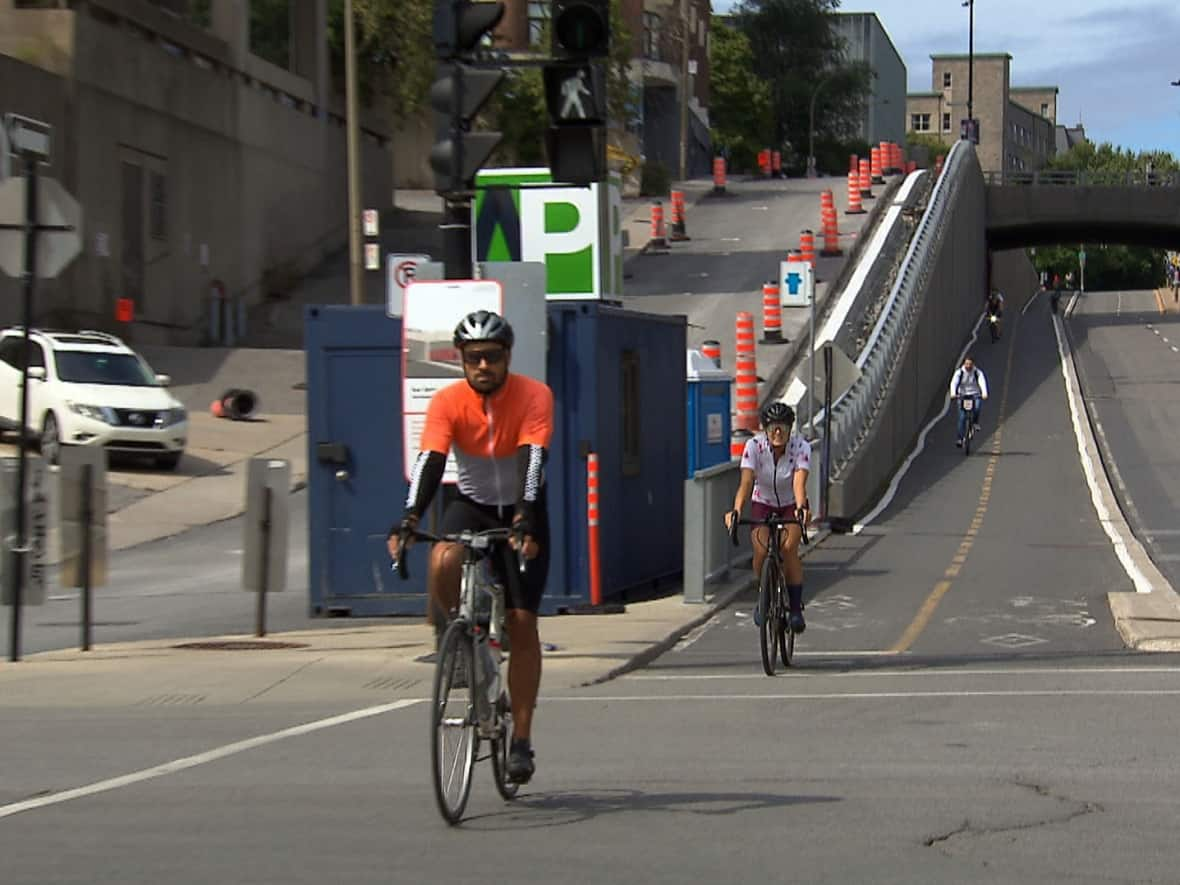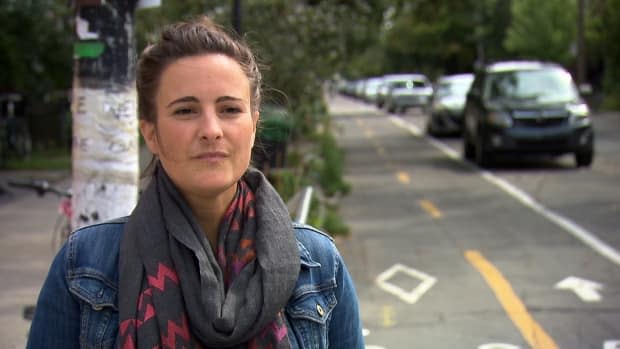Quebec coroner recommends police investigate fatal bike crashes even if there's no car involved

A Quebec coroner is recommending the city of Montreal do more to investigate fatal bike accidents, especially when a car is not involved.
Coroner Marilynn Morin investigated the 2021 death of a 62-year-old cyclist who crashed downtown at the corner of Berri and Ontario streets.
There's a sloping bike path on Berri down into Ontario where the two streets meet at a busy intersection often crowded with pedestrians, cyclists, cars and trucks.
Morin's report says Robert Leblanc was travelling on a Bixi in the eastbound lane on Ontario when he turned to go up Berri.
At the same time, a cyclist was coming down this hill and collided with Leblanc. The report states that the cyclist had the green light in his favour.
However, because the incident involved two cyclists and not an automobile, the Montreal police service's collision squad did not investigate.
And with no investigation, there are no photos, measurements or data on the collision.
The coroner is recommending the city mandate collision investigators look into all fatal or serious collisions involving bikes.
The coroner is also recommending that the city reworks the Berri and Ontario intersection to make it safer.
Vélo Quebec says more should be done
Magali Bebronne, program director with the cyclist advocacy group Vélo Quebec, agrees the intersection should be reworked.
"We should really rethink that intersection and put the priority on people, whatever their mode of transportation," she said.
Wider paths better accommodate the different speeds of cyclists, she said. At Berri, it would make more sense to have unidirectional bike lanes on either side of the street, she said.

"The bidirectional bike path is an old design that dates back to the 80s," said Bebronne. She says it doesn't work in a city with so much bicycle traffic.
Bebronne also agrees that such collisions should be investigated.
"These collisions don't get the attention they deserve and if they don't get the attention they deserve, no measures are being put in place so they don't happen again," she said.
Bebronne said her organization has also been lobbying the Société de l'assurance automobile du Québec (SAAQ) to cover victims of road crashes where no motor vehicle was involved.
A Montreal spokesperson said the city is looking into the coroner's report.


